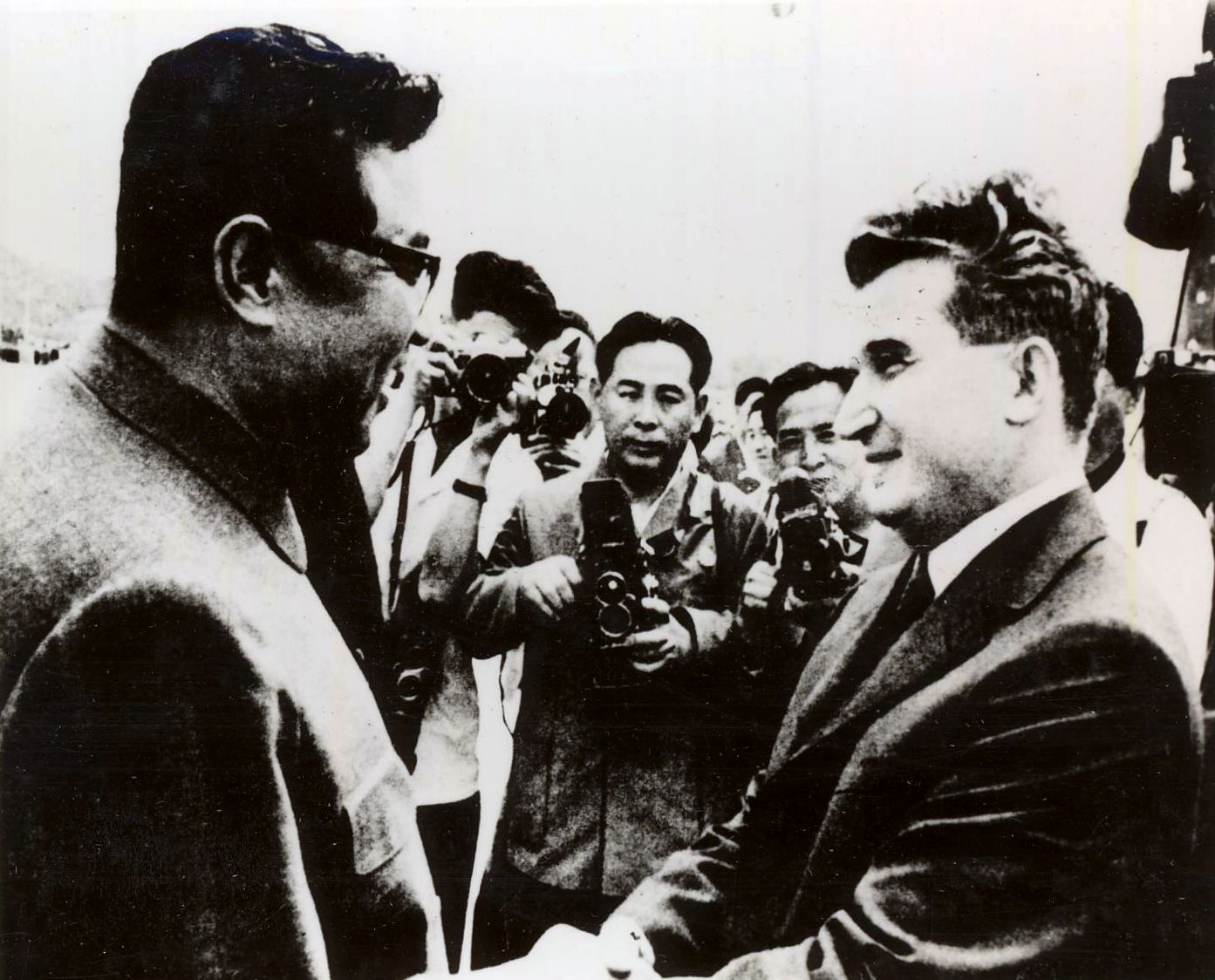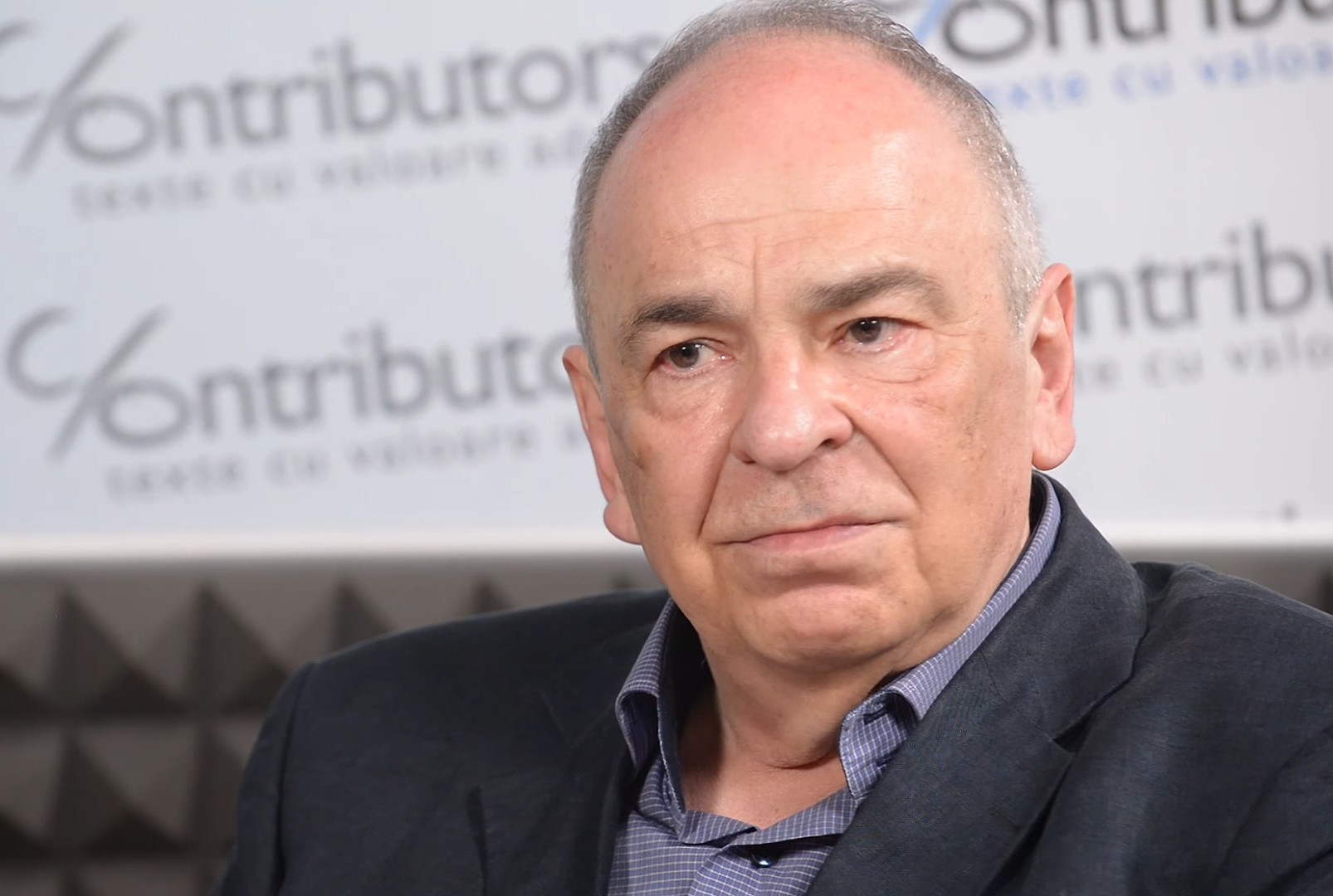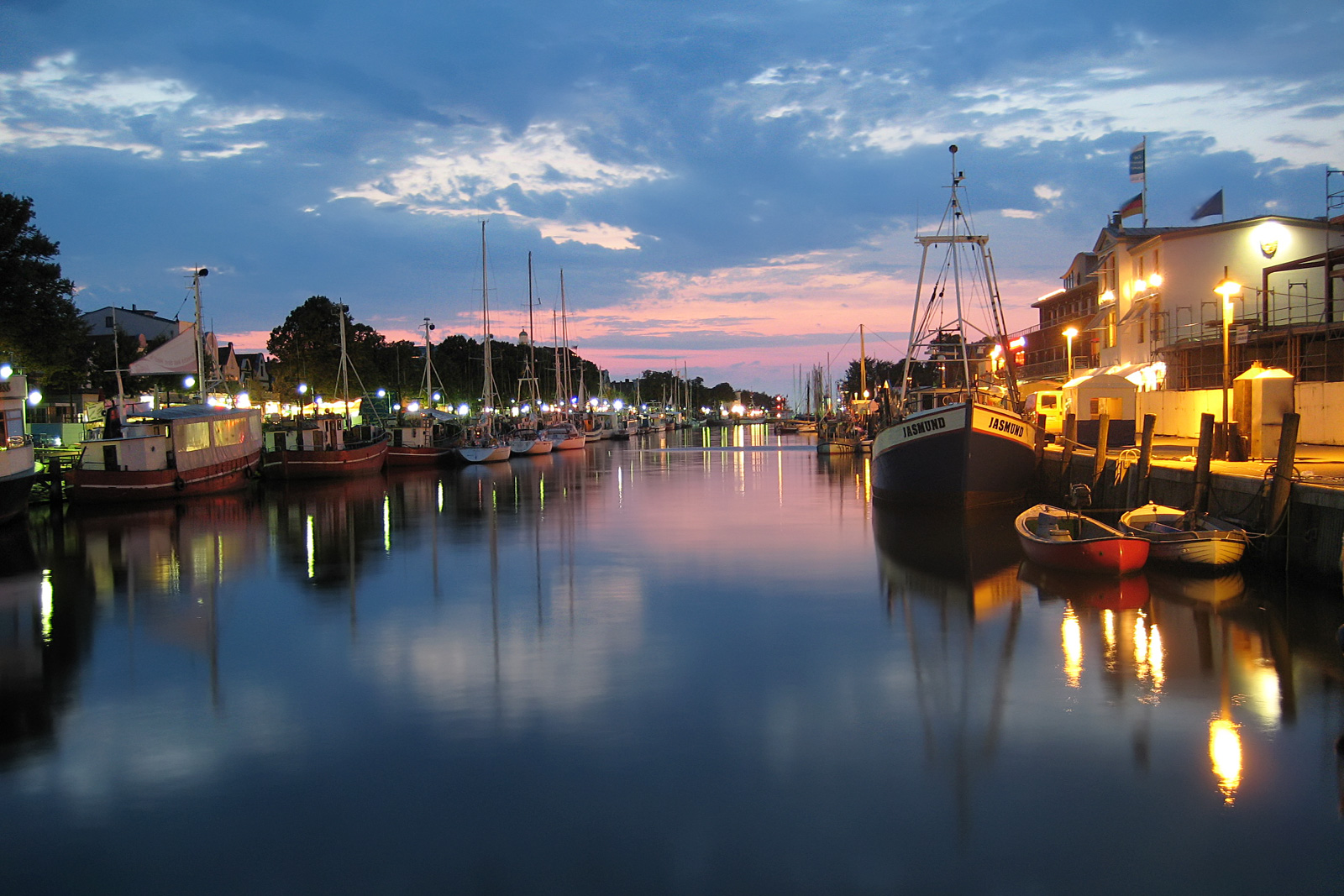|
July Theses
The July Theses ( ro, Tezele din iulie) is a name commonly given to a speech delivered by Romanian leader Nicolae Ceaușescu on July 6, 1971, before the Executive Committee of the Romanian Communist Party (PCR). Its full name was ("Proposed measures for the improvement of political-ideological activity, of the Marxist–Leninist education of Party members, of all working people"). This quasi-MaoistCioroianu, p. 489.Liiceanu, p. xviii.Tismăneanu, p. 241 speech marked the beginning of a "mini cultural revolution"Cioroianu, p. 489–92. in the Socialist Republic of Romania, launching a Neo-Stalinist offensive against cultural autonomy, a return to the strict guidelines of socialist realism and attacks on non-compliant intellectuals. Strict ideological conformity in the humanities and social sciences was demanded. Competence and aesthetics were to be replaced by ideology; professionals were to be replaced by agitators; and culture was once again to become an instrument for communist p ... [...More Info...] [...Related Items...] OR: [Wikipedia] [Google] [Baidu] |
Nicolae Ceaușescu
Nicolae Ceaușescu ( , ; – 25 December 1989) was a Romanian communist politician and dictator. He was the general secretary of the Romanian Communist Party from 1965 to 1989, and the second and last Communist leader of Romania. He was also the country's head of state from 1967, serving as President of the State Council and from 1974 concurrently as President of the Republic, until his overthrow and execution in the Romanian Revolution in December 1989, part of a series of anti-Communist uprisings in Eastern Europe that year. Born in 1918 in Scornicești, Ceaușescu was a member of the Romanian Communist youth movement. Ceaușescu rose up through the ranks of Gheorghe Gheorghiu-Dej's Socialist government and, upon Gheorghiu-Dej's death in 1965, he succeeded to the leadership of the Romanian Communist Party as general secretary. Upon his rise to power, he eased press censorship and openly condemned the Warsaw Pact invasion of Czechoslovakia in his speech on 21 August ... [...More Info...] [...Related Items...] OR: [Wikipedia] [Google] [Baidu] |
Gabriel Liiceanu
Gabriel Liiceanu (; b. May 23, 1942, Râmnicu Vâlcea) is a Romanian philosopher. He graduated from the University of Bucharest's Faculty of Philosophy in 1965, and from Faculty of Classical Languages in 1973. He earned a doctorate in philosophy at the University of Bucharest in 1976. Between 1965 and 1975, Liiceanu was a researcher at the Institute of Philosophy, and between 1975 and 1989 at the Institute of Art History. He received a fellowship from the Humboldt Foundation between 1982 and 1984. He has been the manager of Humanitas publishing house since 1990 . He has been professor at the University of Bucharest's Faculty of Philosophy since 1992. Liiceanu is also a founding member of the Group for Social Dialogue (1990), president of the Romanian Publishers' Association (since 2000), and member of the scientific council of New Europe College. Between 1998 and 2001, he was a member of the Romanian National Television's Administrative Board. He was greatly influenced by his ... [...More Info...] [...Related Items...] OR: [Wikipedia] [Google] [Baidu] |
Censorship In Communist Romania
Censorship in Communist Romania occurred during the Socialist Republic in two stages: under the first Communist president Gheorghe Gheorghiu-Dej (1947-1965) and the second and last Communist president Nicolae Ceaușescu (1965-1989). Before the World War ΙΙ period The Romanian Communist Party (PCR) was not even popular back then, and thus, the Romanian society was not highly censored under the democracy before World War II. Up until the start of the war, Romania had a tendency to become closer to Western European countries; it tried to establish a free market economy, people had access to an abundance of books from all over the world, one could freely travel, there was a thorough education system, and a literature of her own. Romania had its own social infrastructure and people had freedom to some degree. When it comes to the Romanian Communist Party, it had no way to gain popular support in the context of the Soviet Union being seen as a hostile neighbor until the end of the ... [...More Info...] [...Related Items...] OR: [Wikipedia] [Google] [Baidu] |
Collectivization In Romania
__NOTOC__ The collectivization of agriculture in Romania took place in the early years of the Communist regime. The initiative sought to bring about a thorough transformation in the property regime and organization of labor in agriculture. According to some authors, such as US anthropologist David Kideckel, agricultural collectivization was a "response to the objective circumstances" in postwar Romania, rather than an ideologically motivated enterprise. Unlike the Stalinist model applied in the Soviet Union in the 1930s, the collectivization was not achieved by mass liquidation of wealthy peasants, starvation, or agricultural sabotage, but was accomplished gradually. This often included significant violence and destruction as employed by cadres, or Party representatives. The program was launched at the plenary of the Central Committee of the Romanian Workers' Party of 3–5 March 1949, where a resolution regarding socialist transformation of agriculture was adopted along the ... [...More Info...] [...Related Items...] OR: [Wikipedia] [Google] [Baidu] |
Dumitru Radu Popescu
Dumitru Radu Popescu (; 19 August 1935 – 2 January 2023) was a Romanian novelist, poet, dramatist, essayist and short story writer. He was a corresponding member of the Romanian Academy and was, between 1980 and 1990, Chairman of the Romanian Writers' Union. His 1973 novel ''Vînatoarea Regală'' ("The Royal Hunt") was translated into English in 1988. His works have been described as "magical realism" and compared with those of Italo Calvino. Biography Born in Păușa village, Nojorid (Bihor County), he attended the University of Medicine and Pharmacy in Cluj, but left before completing his studies. Later, he studied at Babeș-Bolyai University (Faculty of Philology). He then worked as a reporter for the literary magazine ', from 1956 to 1969, and served as editor of ' magazine, from 1969 to 1982. From 1982 he was editor-in-chief of ''Contemporanul''. Since 2006, he has been the General Manager of the Romanian Academy's publishing house. Popescu received the Prize of the Roman ... [...More Info...] [...Related Items...] OR: [Wikipedia] [Google] [Baidu] |
Canal
Canals or artificial waterways are waterways or engineered channels built for drainage management (e.g. flood control and irrigation) or for conveyancing water transport vehicles (e.g. water taxi). They carry free, calm surface flow under atmospheric pressure, and can be thought of as artificial rivers. In most cases, a canal has a series of dams and locks that create reservoirs of low speed current flow. These reservoirs are referred to as ''slack water levels'', often just called ''levels''. A canal can be called a ''navigation canal'' when it parallels a natural river and shares part of the latter's discharges and drainage basin, and leverages its resources by building dams and locks to increase and lengthen its stretches of slack water levels while staying in its valley. A canal can cut across a drainage divide atop a ridge, generally requiring an external water source above the highest elevation. The best-known example of such a canal is the Panama Canal. Many ... [...More Info...] [...Related Items...] OR: [Wikipedia] [Google] [Baidu] |
Phanariotes
Phanariots, Phanariotes, or Fanariots ( el, Φαναριώτες, ro, Fanarioți, tr, Fenerliler) were members of prominent Greeks, Greek families in Fener, Phanar (Φανάρι, modern ''Fener''), the chief Greek quarter of Constantinople where the Ecumenical Patriarchate of Constantinople, Ecumenical Patriarchate is located, who traditionally occupied four important positions in the Ottoman Empire: Voivode of Moldavia, Voivode of Wallachia, Grand Dragoman, and Grand Dragoman of the Fleet. Despite their cosmopolitanism and often-Western education, the Phanariots were aware of their Greek ancestry and culture; according to Nicholas Mavrocordatos' ''Philotheou Parerga'', "We are a race completely Hellenic". They emerged as a class of wealthy Greek merchants (of mostly noble Byzantine Greeks, Byzantine descent) during the second half of the 16th century, and were influential in the administration of the Ottoman Empire's Balkan domains in the 18th century. The Phanariots usually b ... [...More Info...] [...Related Items...] OR: [Wikipedia] [Google] [Baidu] |
Eugen Barbu
Eugen Barbu (; 20 February 1924 – 7 September 1993) was a Romanian modern novelist, short story writer, journalist, and correspondent member of the Romanian Academy. The latter position was vehemently criticized by those who contended that he plagiarized in his novel ''Incognito'' and for the anti-Semitic campaigns he initiated in the newspapers '' Săptămâna'' and ''România Mare'' which he founded and led. He also founded, alongside his disciple Corneliu Vadim Tudor, the nationalist Greater Romania Party (PRM). His most famous writings are the novels ''Groapa'' (1957) and ''Principele'' (1969).Călin Barbu's prose, in which the influence of neorealism has been noted, drew comparison to the works of Mateiu Caragiale, Tudor Arghezi, and Curzio Malaparte. It was however, considered unequal by several critics, who took into measure Barbu's preference for archaisms, as well as his fluctuating narrative style. Barbu also wrote several film scripts, some of which were fo ... [...More Info...] [...Related Items...] OR: [Wikipedia] [Google] [Baidu] |
Alexandru Drăghici
Alexandru Drăghici (; September 27, 1913 – December 12, 1993) was a Romanian communist activist and politician. He was Interior Minister in 1952 and from 1957 to 1965, and State Security Minister from 1952 to 1957. In these capacities, he exercised control over the Securitate secret police during a period of active repression against other Communist Party members, anti-communist resistance members and ordinary citizens. An industrial worker by profession, Drăghici made his entry into the underground communist movement around the age of twenty. He was arrested for illegal political activity, and spent time in prison before and during World War II. He was close to Gheorghe Gheorghiu-Dej's communist faction, and, as such, rose quickly through the Communist Party ranks. He joined the repressive apparatus shortly before the Romanian communist regime was officially established. Drăghici was infamous especially for the various campaigns he initiated against selected groups that res ... [...More Info...] [...Related Items...] OR: [Wikipedia] [Google] [Baidu] |
Politburo
A politburo () or political bureau is the executive committee for communist parties. It is present in most former and existing communist states. Names The term "politburo" in English comes from the Russian ''Politbyuro'' (), itself a contraction of ''Politicheskoye byuro'' (, "Political Bureau"). The Spanish term ''Politburó'' is directly loaned from Russian, as is the German ''Politbüro''. Chinese uses a calque (), from which the Vietnamese (), and Korean ( ''Jeongchiguk'') terms derive. History The first politburo was created in Russia by the Bolshevik Party in 1917 during the Russian Revolution that occurred during that year. The first Politburo had seven members: Lenin, Zinoviev, Kamenev, Trotsky, Stalin, Sokolnikov, and Bubnov. During the 20th century, politburos were established in most Communist states. They included the politburos of the USSR, East Germany, Afghanistan, and Czechoslovakia. Several countries still have a politburo system in operation: China, North K ... [...More Info...] [...Related Items...] OR: [Wikipedia] [Google] [Baidu] |
Lucrețiu Pătrășcanu
Lucrețiu Pătrășcanu (; November 4, 1900 – April 17, 1954) was a Romanian communist politician and leading member of the Communist Party of Romania (PCR), also noted for his activities as a lawyer, sociologist and economist. For a while, he was a professor at the University of Bucharest. Pătrășcanu rose to a government position before the end of World War II and, after having disagreed with Stalinist tenets on several occasions, eventually came into conflict with the Romanian Communist government of Gheorghe Gheorghiu-Dej. He became a political prisoner and was ultimately executed. Fourteen years after Pătrășcanu's death, Romania's new communist leader, Nicolae Ceaușescu, endorsed his rehabilitation as part of a change in policy. Early life Pătrășcanu was born in Bacău to a leading political family, as the son of Poporanist figure Dimitrie D. Pătrășcanu (Lucrețiu's mother, Lucreția, was a scion of the Stoika family of Transylvanian petty nobility). He beca ... [...More Info...] [...Related Items...] OR: [Wikipedia] [Google] [Baidu] |

.jpg)







